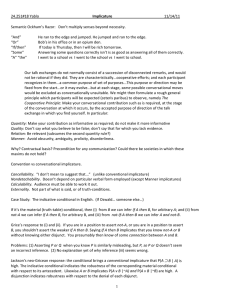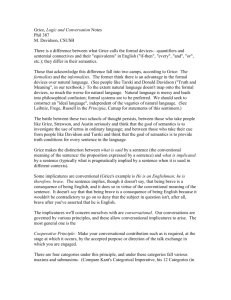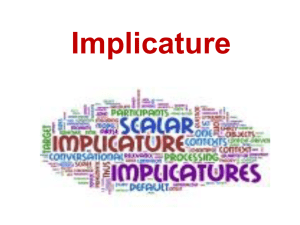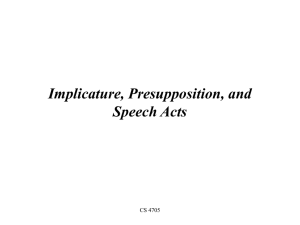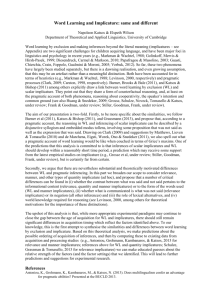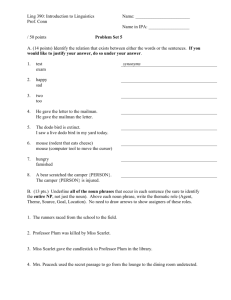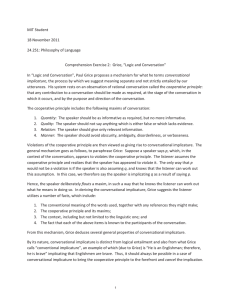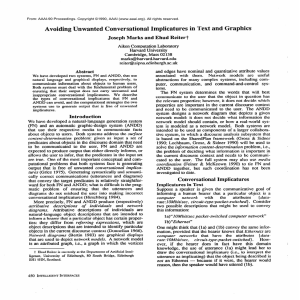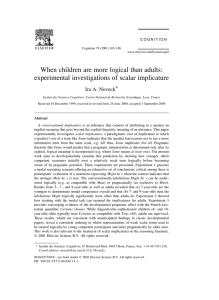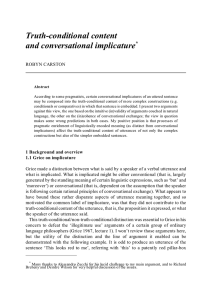Language XIII GRICE: IMPLICATURE
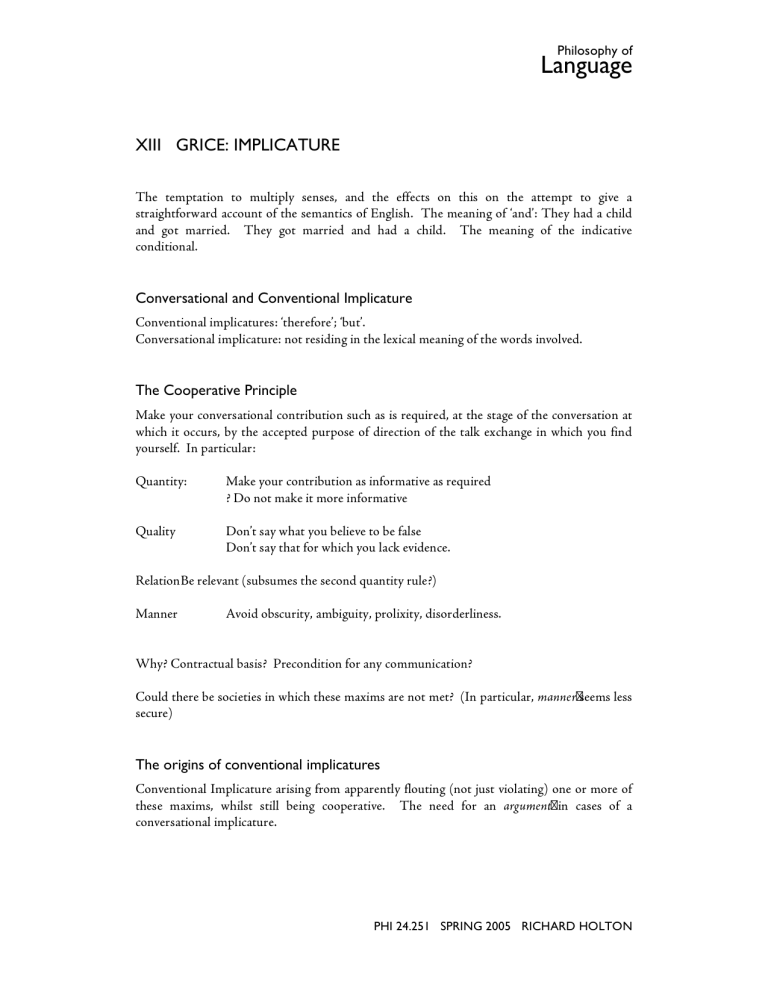
Philosophy of
Language
XIII GRICE: IMPLICATURE
The temptation to multiply senses, and the effects on this on the attempt to give a straightforward account of the semantics of English. The meaning of ‘and’: They had a child and got married. They got married and had a child. The meaning of the indicative conditional.
Conversational and Conventional Implicature
Conventional implicatures: ‘therefore’; ‘but’.
Conversational implicature: not residing in the lexical meaning of the words involved.
The Cooperative Principle
Make your conversational contribution such as is required, at the stage of the conversation at which it occurs, by the accepted purpose of direction of the talk exchange in which you find yourself. In particular:
Quantity:
Quality
Make your contribution as informative as required
? Do not make it more informative
Don’t say what you believe to be false
Don’t say that for which you lack evidence.
RelationBe relevant (subsumes the second quantity rule?)
Manner Avoid obscurity, ambiguity, prolixity, disorderliness.
Why? Contractual basis? Precondition for any communication?
Could there be societies in which these maxims are not met? (In particular, manner seems less secure)
The origins of conventional implicatures
Conventional Implicature arising from apparently flouting (not just violating) one or more of these maxims, whilst still being cooperative. The need for an argument in cases of a conversational implicature.
PHI 24.251 SPRING 2005 RICHARD HOLTON
Other features of conventional implicatures
Cancellability (unlike conventional implicature)
Nondetachability (unlike conventional implicature)
Implicature is not part of the meaning (unlike conventional implicature)
Implicature is not part of what is said, or part of the truth conditions (like conventional implicature)
Does this help with the Kripke explanation of the Donnellan cases?
Indicative Conditionals
How do we understand the indicative conditional in English?
Problem: if the indicative condition is interpreted as the material conditional, then from B we can infer If A then B; and from not-A we can infer If A then B, for arbitrary B.
Grice’s response: the problem is that, if you are in a position to assert B, you shouldn’t asset the weaker If A then B.
Problem: but that is so regarding the inference B to A or B. Yet that doesn’t seem an incorrect inference. Moreover, whilst in some cases the explanation citing conversational implicatures does seem to do the job, in others it doesn’t. Contrast:
I’ll come to the party if my ex-wife is there (and I’ll come if she isn’t)
I’ll come to the party if I sustain serious injuries on the way (since I won’t)
Jackson’s response: the conditional brings a conventional implicature that P(A → B/A) is high.
(The indicative conditional indicates the robustness of the corresponding material conditional with respect to its antecedent.)

